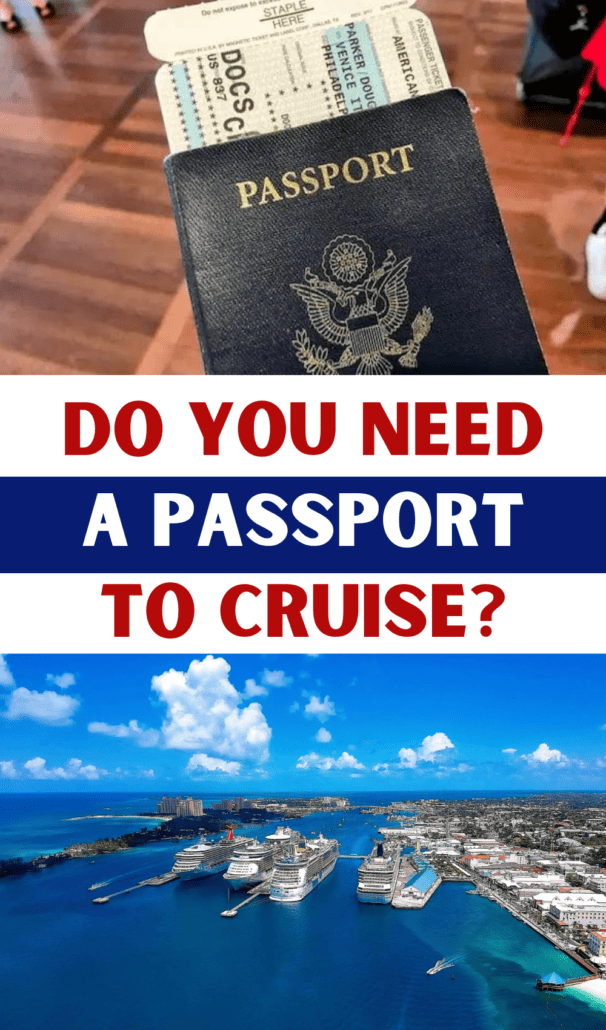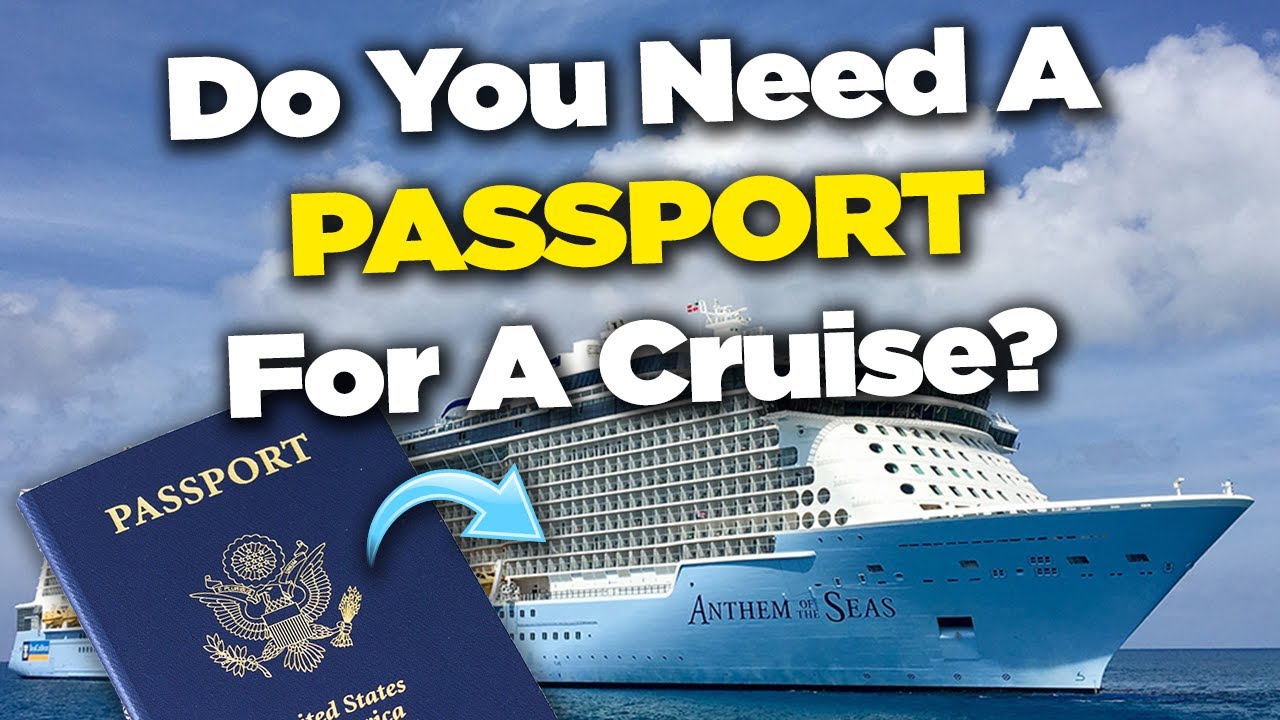Many people love to go on cruises. It is a fun way to travel. But, do you need a passport for a cruise? This is a common question. The answer is not simple. It depends on many factors.
Closed-Loop Cruises
Some cruises start and end at the same port. These are called closed-loop cruises. You may not need a passport for these. But, you need a government-issued ID. This can be a driver’s license. You also need proof of citizenship. This can be a birth certificate.
Open-Jaw Cruises
Other cruises start at one port and end at another. These are called open-jaw cruises. You will need a passport for these. This is because you will fly back home from another country.
International Cruises
Many cruises visit other countries. If you visit other countries, you will need a passport. Some countries will not let you enter without a passport. It is important to check the rules of each country you will visit.
U.S. Citizens
If you are a U.S. citizen, you may not need a passport for closed-loop cruises. But, it is still a good idea to have one. If something goes wrong, you will be glad you have it. You may need to fly home from another country. In that case, you will need a passport.
Non-U.S. Citizens
If you are not a U.S. citizen, you will need a passport. This is true even for closed-loop cruises. You may also need a visa. Check with your cruise line. They can tell you what you need.

Traveling with Children
Children also need documents. If they are U.S. citizens, they need a birth certificate. They also need a government-issued ID. If they are not U.S. citizens, they need a passport. They may also need a visa. Check the rules before you go.
Consequences of Forgetting Your Identification for a Cruise
Embarking on a cruise is an exciting experience, but it comes with certain responsibilities, particularly regarding documentation. What happens if you show up at the port without your required identification? Here’s what you need to know:
1. Denied Entry
- Immediate Refusal: The most significant impact is that you might be refused entry onto the cruise ship. Cruise lines strictly adhere to security protocols, and without the proper documentation, boarding will not be permitted.
- Lost Investment: Being unable to board means forfeiting the cost of your trip. Most cruise companies, along with travel agencies like Expedia or Travelocity, clearly state in their terms that they are not liable for refunds in cases of missing documents.
2. Additional Expenses
- Unexpected Costs: If denied boarding, you may face additional costs for accommodations and travel back home. While travel insurance from companies like Allianz or AIG can sometimes cover such emergencies, it’s not always guaranteed.
3. Trip Disruptions
- Loss of Experiences: If you can’t board the ship, you miss out on the destinations and experiences planned for your vacation. This can be particularly disappointing if you had specific tours or activities booked through excursions platforms like Viator or GetYourGuide.
4. Stress and Inconvenience
- Emotional Toll: The stress of dealing with such an oversight can put a damper on your vacation mood. It requires quick decision-making and often stressful adjustments.
- Last-Minute Solutions: You may need to scramble for alternative vacation plans or rush to your embassy or consulate if there’s a chance to retrieve or replace missing documents.
Being prepared with the necessary identification is crucial for a smooth and enjoyable cruise experience. Always double-check your documentation before leaving for the port to ensure a hassle-free start to your journey. Consider consulting your travel agent or the official website of the cruise line for a checklist of required documents.
Why You Should Have a Passport
It is a good idea to have a passport. Even if you do not need it. Here are some reasons why:
- You may need to fly home from another country.
- You may have an emergency and need to leave the ship.
- You may want to visit other countries in the future.
Having a passport is especially beneficial when cruising, as it is the most hassle-free, gold standard for traveling between countries. Navigating customs with a passport is usually faster than with other types of ID documents, saving you time and stress.
Moreover, if you encounter an issue while exploring a foreign port, such as missing the ship, a passport is invaluable. It offers the flexibility to resolve problems more efficiently, ensuring your travel plans remain as smooth as possible.
In essence, a passport not only prepares you for potential emergencies but also paves the way for future adventures. So, even if your cruise itinerary doesn’t require one, carrying a passport is a wise choice for any seasoned traveler.
Advantages of Using a Passport for Customs During a Cruise
When embarking on a cruise, having a passport can significantly enhance your travel experience. Here’s why:
- Streamlined Customs Process: A passport is widely recognized as the most efficient form of identification when traveling between countries. It typically speeds up the customs process, allowing for quicker boarding and disembarking. This is particularly advantageous when you’re navigating through busy ports.
- Universal Acceptance: Unlike other forms of identification, a passport is accepted globally. This universal recognition helps avoid delays at ports that may be strict about the forms of ID they accept.
- Essential for Emergencies: In case of unexpected situations, such as missing your ship during a day at a foreign port, having a passport on hand can be a lifesaver. It provides greater flexibility to make alternative travel arrangements.
By opting for a passport instead of other identification types, you ensure a smoother, more efficient journey and safeguard against potential travel hiccups.

How to Get a Passport
Getting a passport is not hard. Here are the steps:
- Fill out a form. You can get it online or at a post office.
- Get your photo taken. You need a special passport photo.
- Gather your documents. You need proof of citizenship and a government-issued ID.
- Submit your application. You can do this at a post office or online.
- Pay the fee. You can pay with a credit card or a check.
How Long Does It Take?
Getting a passport takes time. It can take several weeks. Sometimes it takes longer. It is best to apply early. Do not wait until the last minute.
What If You Lose Your Passport?
If you lose your passport, do not panic. Here is what to do:
- Report it lost. You can do this online or at a U.S. embassy.
- Apply for a new passport. You will need to fill out a form.
- Get new photos taken. You need a new passport photo.
- Pay the fee. You can pay with a credit card or a check.
What If the Name on My Passport Doesn’t Match My Reservation?
When planning a trip, ensuring that the name on your passport matches the name on your reservation is crucial. Discrepancies can lead to unnecessary stress and potential travel disruptions. Here’s what you need to know:
1. Possible Issues at Check-In
Mismatched names are often flagged during the check-in process. Airlines and cruise lines use strict identity verification procedures, and inconsistencies can cause delays, preventing you from boarding.
2. Correcting the Mismatch
- Contact the Travel Provider: As soon as you notice the mismatch, reach out to your airline, cruise line, or travel agent. They are often able to correct simple errors swiftly.
- Documentation Requirements: Be prepared to submit additional documentation, like marriage certificates or legal name change documents, to verify your identity.
- Fees and Policies: Some companies may charge a fee for name changes. Familiarize yourself with their specific policies to avoid unexpected costs.
3. Plan Ahead for Future Trips
To prevent these issues in the future:
- Synchronize Personal Records: Ensure your travel documents are updated and consistent with your legal name. This includes checking your passport, driver’s license, and frequent traveler accounts.
- Double-Check Booking Information: Always review the spelling and order of your name before finalizing any reservations. Even minor mistakes can become major headaches.
4. Legal Implications
Delays or denials due to mismatched names can lead to missing flights or cruises, which might not be compensated. Having the correct name on your travel documents protects you from these risks.
5. Potential Solutions if Stuck
- Travel Insurance: Some policies cover expenses related to denied boarding due to mismatched documentation. Check your policy or consider purchasing insurance that includes this coverage.
- Professional Assistance: If all else fails, seek help from a travel advisor or an ombudsman to mediate and resolve the issue.
Stay proactive by confirming all details well in advance, ensuring smooth sailing on your journey!
Frequently Asked Questions
Do You Need A Passport For A Cruise?
Yes, most cruises require a passport for international travel. For your cruise, ensure your passport extends its validity to at least six months beyond your return date. This buffer is crucial as many countries enforce this rule to accommodate unforeseen travel disruptions.
Your passport must remain valid for a minimum of six months after your cruise concludes.
Can You Cruise Without A Passport?
Yes, some closed-loop cruises do not require a passport.
What Is A Closed-loop Cruise?
A closed-loop cruise starts and ends at the same U. S. port.
Do Kids Need A Passport For A Cruise?
Yes, kids need a passport for international cruises.
Conclusion
Do you need a passport for a cruise? It depends. For closed-loop cruises, you may not need one. But, it is a good idea to have one. For open-jaw and international cruises, you will need a passport. Check the rules before you go. Make sure you have the right documents.
While some cruises might accept other forms of ID, carrying a passport is often the best choice. Here’s why:
- A passport serves as a hassle-free, gold standard for international travel.
- It typically speeds up boarding and disembarking through customs compared to other IDs.
- If you encounter issues while exploring a foreign port, having a passport can be a lifesaver.
Important Details to Remember:
- Your passport should be valid for at least six months after your cruise ends.
- Ensure the name on your passport matches your reservation to avoid complications.
Travelers without the necessary documents may be denied boarding, so it’s crucial to double-check your papers before heading out.
Enjoy your cruise!

